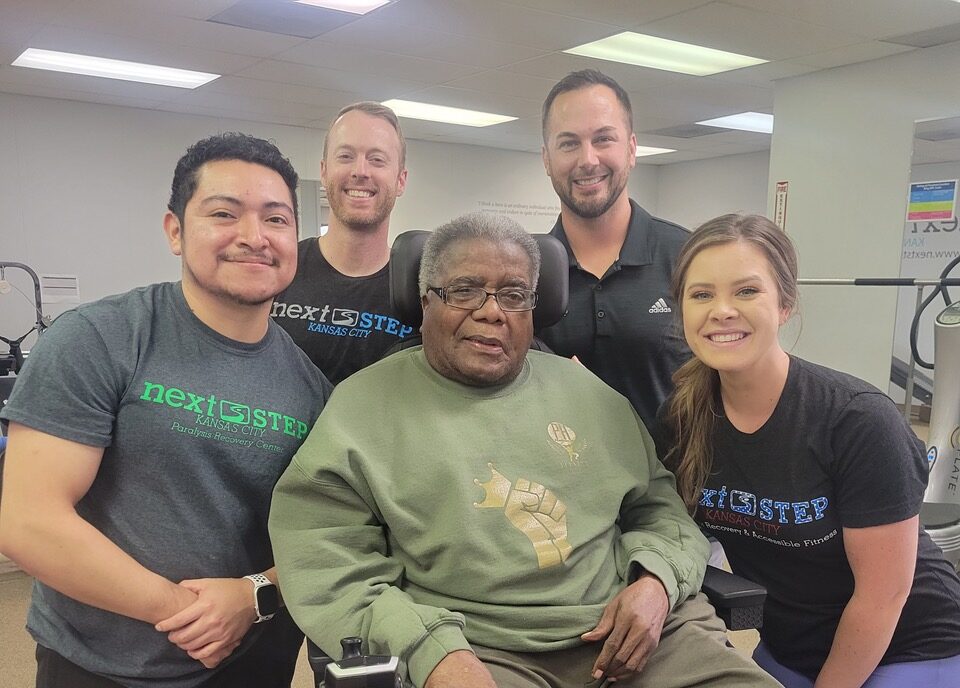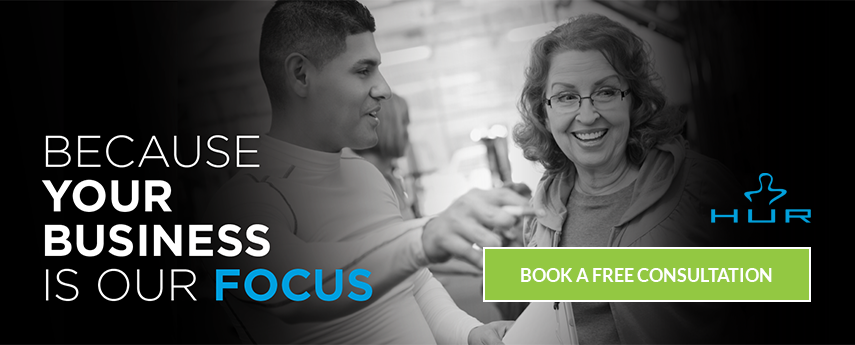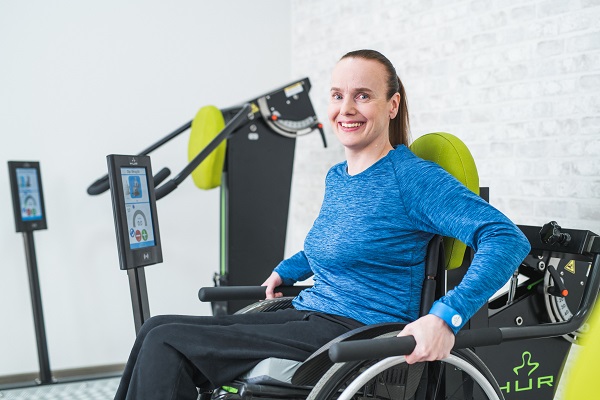Individuals living with paralysis aren't always given a lot of hope about their condition. From day one, they may be given a long list of what they can’t do. NextStep Kansas City believes everyone can make progress and works hard to offer hope through their program. We sat down with Chris Smith, the Executive Director of NextStep Kansas City, to learn more about their programs and how they are making a difference.
HUR: Can you tell me a little bit about your program and how you are offering hope to individuals living with paralysis?
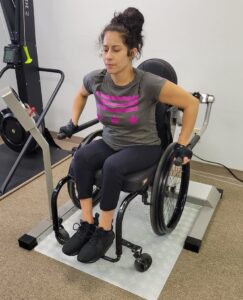 Chris: At NextStep Kansas City we offer activity based therapy. We are part of the NeuroRecovery Network, and the interventions we utilize include Guided Exercises, Neuromuscular Electrical Stimulation (NMES), Locomotive Training (LT), and more. Some aspects of our interventions can appear to be similar to what you would see in traditional therapy clinics, but it is our approach toward integrating the nervous system below the level of injury that makes us unique. We want to continue to be a place that offers individuals real hope, and we do that by providing evidence-based interventions in an environment that is specific to people looking for long-term recovery from paralysis.
Chris: At NextStep Kansas City we offer activity based therapy. We are part of the NeuroRecovery Network, and the interventions we utilize include Guided Exercises, Neuromuscular Electrical Stimulation (NMES), Locomotive Training (LT), and more. Some aspects of our interventions can appear to be similar to what you would see in traditional therapy clinics, but it is our approach toward integrating the nervous system below the level of injury that makes us unique. We want to continue to be a place that offers individuals real hope, and we do that by providing evidence-based interventions in an environment that is specific to people looking for long-term recovery from paralysis.
HUR: Can you tell me more about the environment you provide?
Chris: Everyone who comes to NextStep Kansas City is living with some form of paralysis. This means they are able to receive treatment in an environment with other people that truly understand what they are going through, and what types of challenges they face every day. For our clients, recovery is a LONG process. They need to believe what they are doing is working and is worth their effort. Being around others on a similar journey helps build comradery and a sense of community that can provide the mental strength necessary to stay as motivated and positive as possible.
"Working out has always been important to me. The HUR accessible equipment at NextStep Kansas City makes it possible for me to use it with more independence. I don't always have to always have help to get set up. ~ Trevor J., client at NextStep Kansas City
HUR: What Accessible Equipment do you offer?
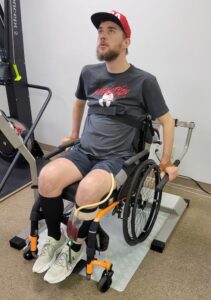 Chris: Absolutely. Our team uses a variety of specialized, cutting-edge equipment during our Activity-Based Therapy sessions. However, we wanted to offer more. We wanted to create a gym-like environment in order to reach people in our community that might not be interested in a recovery program, but want to be able to workout in a space that provides them the freedom and independence of a traditional gym. HUR strength training equipment allows us to provide equipment that maximizes independence and is fully accessible for as many people as possible. Pneumatic equipment allows for strength increases in small increments where the load can be easily adjusted by the push of a button. Making this kind of equipment available in a community-based setting helps remove major barriers that often prevent people living with paralysis from making physical activity an important part of their lives.
Chris: Absolutely. Our team uses a variety of specialized, cutting-edge equipment during our Activity-Based Therapy sessions. However, we wanted to offer more. We wanted to create a gym-like environment in order to reach people in our community that might not be interested in a recovery program, but want to be able to workout in a space that provides them the freedom and independence of a traditional gym. HUR strength training equipment allows us to provide equipment that maximizes independence and is fully accessible for as many people as possible. Pneumatic equipment allows for strength increases in small increments where the load can be easily adjusted by the push of a button. Making this kind of equipment available in a community-based setting helps remove major barriers that often prevent people living with paralysis from making physical activity an important part of their lives.
HUR: How does celebrating success impact the program?
Chris: We are very careful about overpromising. I wish we could give our clients more concrete expectations, but definitely saying they will, or won’t do something in any amount of time makes unfair assumptions that nobody currently has the power to make. We see people defy odds they were given all the time. Most of the time, our clients don’t need us to remind them that their progress is something to be celebrated. However, there are times that we explain why the gains that are perceived as small, are no small feat. When someone so badly wants to make progress by leaps and bounds, it can be challenging for them to see the importance of taking smaller “steps” along the way. We also recognize that mental health plays an extremely important role in the recovery process. If people feel that they are making progress, no matter how small, then it gives them hope. As people continue to make progress, hope grows. As the hope grows, it spills over into other areas of their life – home, work, and play – and the motivation to continue to work toward their goals strengthens.
